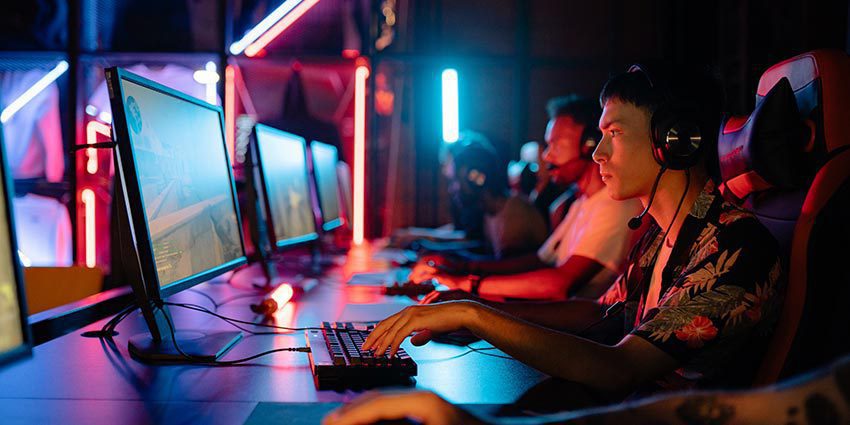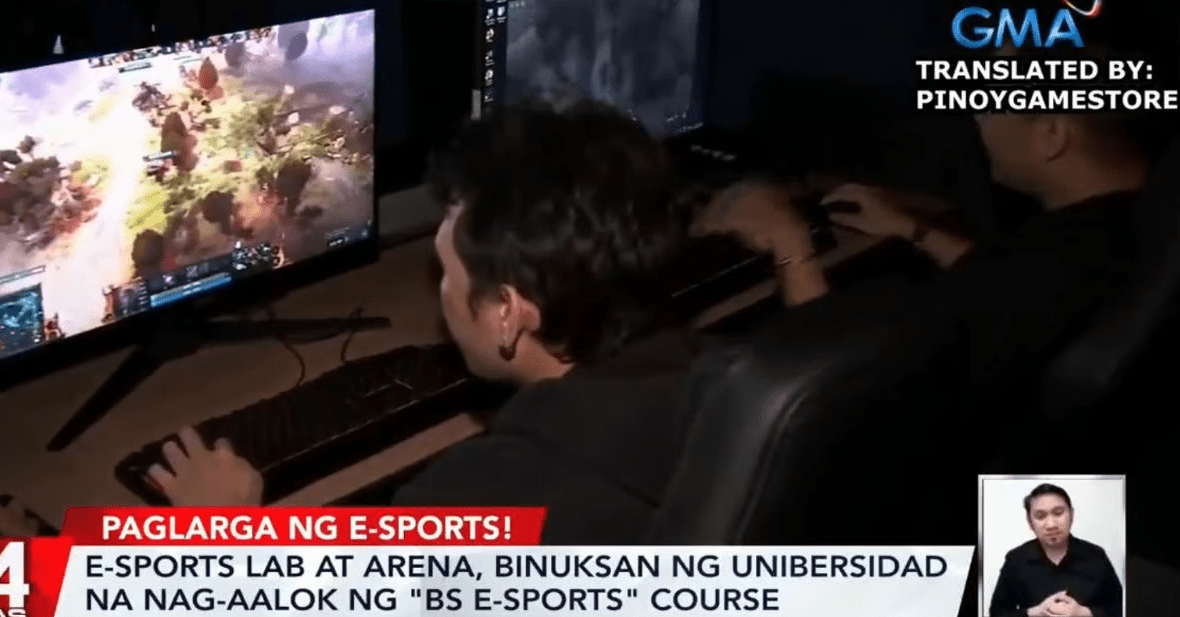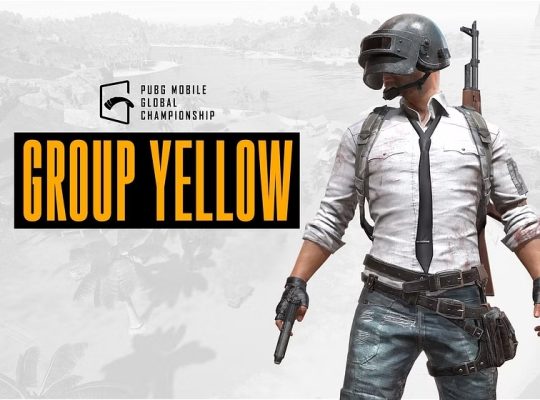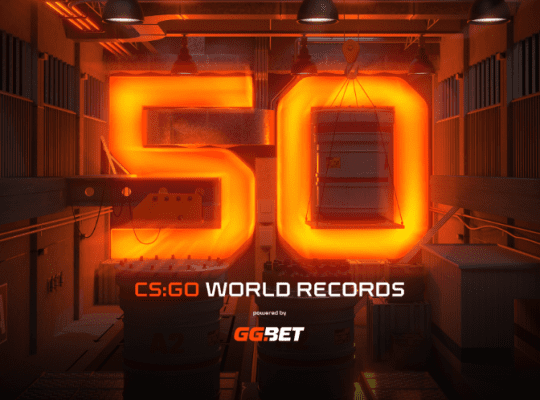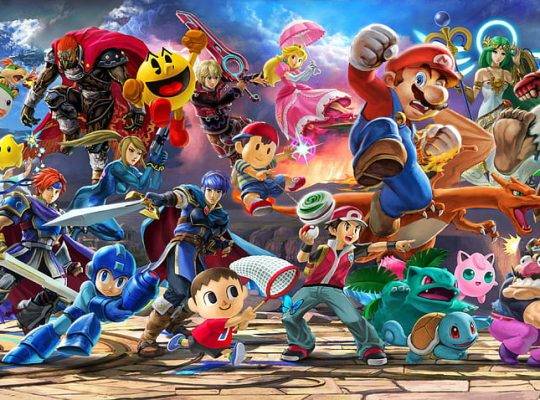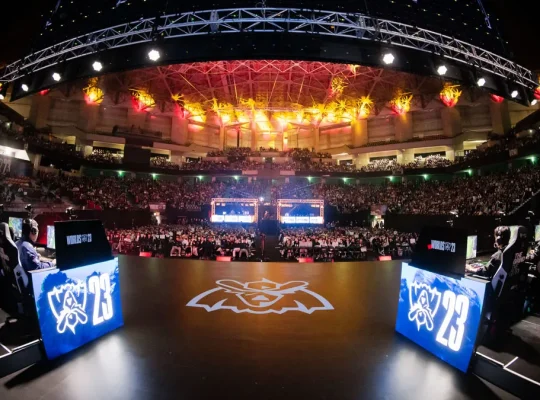Dota 2 Esports: Assessing the Game’s Market Challenges and Opportunities for Growth
As esports continue to gain global traction, Dota 2 remains a high-stakes battleground for professional players and ambitious organizations alike. However, the game’s current ecosystem has raised concerns among decision-makers such as Furia Esports CEO Jaime Pádua, who has cited imbalanced priorities and a steep learning curve as potential deterrents to growth. This report seeks to explore the challenges and opportunities associated with Dota 2’s competitive scene, offering recommendations rooted in market and financial research to foster sustainable development.
Market Trends and Competitive Landscape
Over the past decade, Dota 2’s esports scene has evolved significantly, peaking with the International 8‘s record $25 million prize pool in 2018. However, it has exhibited signs of stagnation since reaching that historic milestone. Factors plaguing the game’s growth include:
- Saturated market: As the esports industry expands, competitions in other game titles have drawn both talent and audience share away from Dota 2. For example, titles such as League of Legends and Fortnite have seen increasing popularity, boasting massive player populations and lucrative tournament prizes.
- Concentrated prize pools: Dota 2’s tournament rewards are heavily weighted on prestigious events like The International. While this creates significant buzz around such events, it leaves limited resources for smaller competitions and reduces the incentive for continued investment by sponsors and organizations.
- Limited regional diversity: Unlike rival titles, Dota 2 has failed to capture the attention of global markets, with the majority of its player base concentrated in Europe, China, and Southeast Asia. Consequently, the game has experienced difficulty expanding its audience and attracting new talent.
Financial Potential of Dota 2
Despite these challenges, Dota 2 possesses enormous financial potential, as evidenced by existing data points and historical trends. Key findings include:
- Continued demand for high-quality esports content: According to Newzoo’s 2021 Global Esports Market Report, global esports revenues are projected to reach $1.08 billion this year, with 75% of revenues stemming from media rights and sponsorships.
- Strong viewership and sponsorship opportunities: Dota 2 consistently ranks among the top esports titles on platforms such as Twitch, where its viewership frequently surpasses 100,000 concurrent spectators during high-profile matches. This robust user engagement opens the door for lucrative advertising and sponsorship deals.
- High player earning potential: With stellar events such as The International, professional Dota 2 players can take home millions of dollars, creating a competitive, high-stakes environment that may appeal to investment-minded organizations.
Recommendations for Operational Overhaul
To address the concerns of esports stakeholders like Pádua, we propose the following comprehensive strategies to reposition Dota 2 for sustainable growth:
- Revise the prize pool distribution: Allocate more resources to smaller events and independent leagues, fostering a healthier, year-round competitive scene that presents more opportunities for new teams and players to gain experience and exposure.
- Expand regional efforts: Encourage growth in underrepresented regions, such as North and South America, by hosting localized tournaments and investing in grassroots initiatives that nurture talent and increase the game’s popularity.
- Support organizational involvement: Prioritize team-based incentives that promote investment and stability, such as franchising and revenue-sharing models, which have been successfully deployed in rival esports titles. This approach can help create paths for sustainable organizations, teams and players.
- Maintain competitive integrity: Ensure fair play and combat cheating by developing oversight systems that are effective but not too restrictive. As more opportunities arise, the need to protect competitive integrity will become increasingly important.
- Promote awareness: Take advantage of traditional media outlets as well as digital platforms to spread the word about esports. This can include sponsored events, collaborations with influencers and content creators, or other forms of advertising. By increasing visibility, esports can reach new audiences and build a stronger fan base.
- Drive engagement and participation: Create activities that incentivize viewership while also allowing fans to directly engage with their favorite teams or players in meaningful ways. Examples could include raffles, tournaments and community
- Support professional players: Show your commitment to esports by providing support for the professionals that make it possible. This could include anything from offering competitive salaries and benefits, to providing additional resources such as coaching, mental health care, or physical training regimens. By investing in the best players, you can ensure that your organization is always staying ahead of the competition.
- Connect with sponsors: Esports provides a unique opportunity to connect with brands and sponsors who are looking for new ways to reach their target audience. By forming strategic partnerships, you can open up new revenue streams while also creating an environment that is more engaging and inviting for fans.
- Invest in technology: Technology will be a key factor in enabling esports organizations to stay ahead of the competition. Investing in the latest software and hardware will help create a more immersive gaming experience for both players and viewers alike, while also driving innovation.
- Cultivate strong relationships: The esports industry is built on relationships, so it’s important to cultivate strong relationships with your players, sponsors, fans, and partners. By doing this, you can ensure that your organization remains competitive in an ever-evolving landscape.
- Focus on player development: Player development should be at the forefront of any esports organization’s strategy. It’s important to provide resources and opportunities for players to hone their skills and develop into better competitors over time. This could range from providing additional training sessions or tutoring sessions, to offering educational benefits.
The Rise of Esports in the Philippines: LPU-Manila Launches Undergraduate Program
The world of esports has come a long way since its humble beginnings as a niche hobby for gaming enthusiasts. Over the past few years, esports has evolved into a multi-billion-dollar global industry, with millions of fans tuning in to watch and participate in elite gaming competitions.
Esports can trace its roots back to the early days of gaming in the 1970s and 1980s, marked by the breakthrough success of titles like Pong and Space Invaders. The growth of gaming arcades and consoles laid the groundwork for competitive gaming, paving the way for the first recognized esports tournament, the Space Invaders Championship held in 1980.
Over the next three decades, esports continued to grow steadily, benefiting from the advancements in gaming technology and the emergence of new gaming communities. The proliferation of internet connectivity and streaming platforms such as Twitch further fueled the rapid expansion of the esports industry in recent years.
Esports in the Philippines
In recent years, the Philippines has emerged as a hotbed of esports talent and enthusiasts. The popularity of esports in the country has skyrocketed, driven by the widespread adoption of smartphones and the success of local tournaments such as the Philippine Pro Gaming League.
With this increasing prominence of esports in the region, it comes as no surprise that academic institutions are now recognizing the need to cater to the growing demand for esports professionals. Enter the Lyceum of the Philippines University-Manila (LPU) College of Technology, which has recently introduced the first-ever Bachelor of Science in Esports program in the country.
The LPU-Manila Esports Program
The comprehensive curriculum of the BS Esports program at LPU-Manila aims to equip students with an in-depth understanding of the esports ecosystem. Course offerings include esports production and management, as well as game design and development. Furthermore, the university has established an esports lab and arena, complete with state-of-the-art technology and facilities, providing students with a hands-on learning environment.
Dr. Arlene Caballero, dean of the College of Technology at LPU-Manila, emphasized the need for qualified professionals to support the esports industry. “Esports is a growing industry. We believe that as a university we should cater to this gap, there’s really a need to work on the backend,” she said.
Benefits of Studying Esports
Students enrolled in the BS Esports program at LPU-Manila have the potential to secure a wide range of career opportunities in an increasingly lucrative industry, including game design, team management, event production, and more.
A current student of the program, John, shared his thoughts on the benefits of studying esports. “I’ve always been passionate about gaming, and now that esports is becoming big in the Philippines, I want to be part of this industry. This program is an amazing opportunity to learn about game development and management at the same time,” he said.
LPU’s Decision and the Future of Higher Education in the Region
The introduction of the esports program at LPU-Manila is a significant step forward in aligning higher education with the evolving demands of the job market. This educational initiative demonstrates the institution’s commitment to innovation and adaptability, as well as its responsiveness to contemporary trends within the esports community.
As esports continues to gain mainstream recognition and establish itself as a legitimate industry, the launch of the BS in eSports program at LPU-Manila provides a solid foundation upon which higher education will be able to meet the needs of the esports industry, both in terms of personnel and technology.
This initiative is not only an important milestone for Philippine esports, but also for the future of higher education in the region. By taking this step, LPU-Manila is positioning itself as a frontrunner in providing quality education and training that can produce qualified professionals who can compete globally. With its focus on game development and management, this program has immense potential to positively affect the entire gaming ecosystem within Southeast Asia.
For students looking to explore their passion for esports, or those seeking a career path into the industry, there is now an accessible route through which they can gain the skills and qualifications to begin their journey. LPU-Manila’s esports program provides a comprehensive curriculum that covers all aspects of game development, from design fundamentals to analytics, team management, marketing, and more. It also offers students opportunities to network with professionals in the industry through internship programs at gaming companies or organizations. With such resources available, aspiring esports professionals now have access to support they need to help them reach their goals.
At Esportsport.com we are proud to be part of this pioneering effort by supporting LPU-Manila’s efforts towards increased accessibility for higher education within the esports industry in Southeast Asia. We hope that this initiative will inspire more similar initiatives across the region—opening doors for people who have the passion and drive to pursue their dreams within the industry. We’re excited to see what these ambitious professionals achieve in the coming years!
Feel free to explore our Esportsport site for more information on courses, internships, scholarships, and other resources available in the esports industry. Together, let’s make it easier for passionate gamers everywhere to compete and succeed in this exciting field of competitive gaming!

